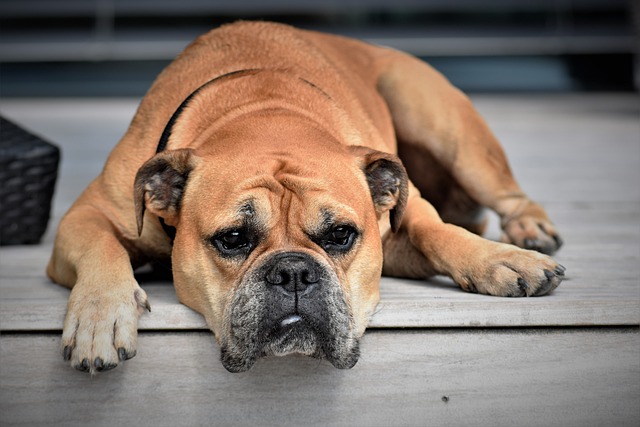
Bulldogs are a British dog breed. It is a large, medium-sized dog that can be weighed down and has a nose similar to a mastiff. This dog is known for being intelligent and loyal. You will need to learn some important information about the Bulldog before you consider getting one as your pet.
Historical background
Bulldogs were once small dogs that served as companions for humans and other animals. Due to the increase in dogfighting and the need for livestock protection, bulldogs grew in size and were eventually crossed with terriers. This breed eventually became known as the English bulldog. This breed has been around for centuries. Its history dates back to ancient times.
Bullbaiting is now a rare breed. However, bulldogs were once bred for their aggressiveness and power. These dogs had heavy muscling and a sturdy skeleton. These dogs were ideal for baiting bulls. However, it also created a lot of health problems.
Characteristics
Bulldogs possess a few desirable characteristics that make them attractive pets. Bulldogs are quiet, but they can snore and wheeze. They shed a little and require minimal maintenance. Their short coats are easy to maintain, but they need to be kept clean.

Originally, the Bulldog was bred for the bull-baiting ring. Bullbaiting was prohibited in England in the 19th century. This practice resulted in bulldogs with aggressive tendencies. The English bulldog was then bred to be more friendly.
Health problems
Bulldogs can be susceptible to several health problems. These problems include skin and internal problems as well as allergies. Many of these issues can be treated with medication. For Bulldogs suffering from any of these conditions, it is important that you consult your veterinarian. Skin allergies are particularly common in French Bulldogs. There are many factors that can cause skin allergies, including food intolerances, parasites, and environmental factors. These conditions can cause wrinkled skin which can lead to infection.
Tear stains can also be a problem for Bulldogs. Tear stains can indicate inflammation of the tear-duct which hinders proper drainage. Even though these stains are easily removed by cleaning the dog’s eyes, the residual moisture can encourage bacteria and yeast growth, which can lead into infections. Tear staining may be due to genetics, allergies, or infected eyes.
Body type
Bulldogs are strong and muscular. Its shoulders and head have a barreled, muscular appearance. Its back is slight arched. It has a thick, well-defined tail. It has short, stocky legs with good muscle definition. Their legs have a sturdy posture.
Bulldogs are a large breed that can seem intimidating. However, there are some advantages and disadvantages to this body type. One is that these dogs need moderate exercise. English Bulldogs don't require a yard. Their sizes vary depending on their body type.
Water sensitivity

If your bulldog seems to be sensitive to water, it may have a condition called Bulldog water sensitivity. There are many factors that can cause this condition. Dry skin is the most common symptom. Bulldogs can scratch excessively due to dry skin. Lack of moisture can lead to dry skin that becomes flaky and infected. It can also lead yeast infections and hot spot formation.
Water sensitivity can also be caused by damaged teeth or pain. In these situations, your dog might not drink water. Water refusal can also be caused by anxiety, separation anxiety, or other psychological issues.
FAQ
Is it appropriate for children to own a pet at what age?
Children under 5 years old should not own pets. Children under five years old should not own cats and dogs.
Most children who have pets are bitten by them. This is especially true for small dogs.
Some dogs, such as pit bulls or other aggressive breeds, may be aggressive towards certain animals.
A dog can be friendly but not aggressive, even if it appears friendly.
So, if you choose to get a dog, ensure it is well trained. Your child should always be supervised while playing with the dog.
What are some things to consider before purchasing an exotic pet
Before you purchase an exotic pet, you should think about these things. You must decide whether you plan to keep the animal or sell it. If you're keeping it as a pet, then make sure you have enough space for it. Also, you need to determine how much time and effort it will take. It takes time to care for an animal, but it's worth it because they give great companionship.
If you are looking to sell your animal, you will need to find someone willing to buy it. It is important that anyone who purchases your animal understands how animals are cared for. Also, make sure that you don't overfeed the animal. This could cause health problems later on.
If you are considering exotic pets, you should ensure that you thoroughly research them. Many websites provide information about various types of pets. You should be careful not to fall for any scams.
How to Make Your Pet Smile
Pet owners often wonder how to make their pets happy. Many pet owners buy treats, toys, and even clothes. It might not work as pets may not like certain things. For example, some dogs cannot stand to wear sweaters.
Try to understand why your pet doesn't love it before you buy it. You may discover that he just likes different kinds of foods than you do. He might even hate shoes.
Another tip is to play games with your pet. A ball or a frisbee are good options. Throw it around the room. You can also throw it into the air and let him chase it. This game will make you both laugh. It's both relaxing and enjoyable.
A good idea would be to give your pet an occasional bath once or twice a week. Bathing can help remove dead skin cells. He will also enjoy a nice smelling bath.
It's also important to keep your pet healthy. Don't allow him to eat junk foods. Do not allow him to eat junk food. Instead, give him high-quality food. He should get plenty of exercise, too. You can take him out for a stroll or play fetch.
Your pet will enjoy spending time with you. In fact, pets are more comfortable being with their owners than living alone.
Last but not least, be sure to unconditionally love your pet. Never yell at him. Be patient with the boy. And never leave him alone.
How can I determine if my dog is suffering from fleas
If you notice your pet scratching at its fur, licking itself excessively, or looking dull and unkempt, then chances are he/she may have fleas.
Flea infestations can also be detected if your pet shows any redness.
You should take your pet to a vet as soon as possible for treatment.
Statistics
- Pet insurance helps pay for your pet's medical care, with many policies covering up to 90 percent of your vet bills. (money.com)
- Here's a sobering reality: when you add up vaccinations, health exams, heartworm medications, litter, collars and leashes, food, and grooming, you can expect a bill of at least $1,000 a year, according to SSPCA. (bustle.com)
- A 5% affiliation discount may apply to individuals who belong to select military, law enforcement, and service animal training organizations that have a relationship with Nationwide. (usnews.com)
- * Monthly costs are for a 1-year-old female mixed-breed dog and a male domestic shorthair cat less than a year old, respectively, in excellent health residing in Texas, with a $500 annual deductible, $5,000 annual benefit limit, and 90% reimbursement rate. (usnews.com)
- Reimbursement rates vary by insurer, but common rates range from 60% to 100% of your veterinary bill. (usnews.com)
External Links
How To
The best way to tell a dog where it is appropriate to go to urinate.
Teaching your pet how to use the toilet correctly is essential. It's crucial that you know how to train your pet to go outside. Here are some tips to help you teach your dog how to use the bathroom properly.
-
Training should be started early. You don't want any injuries during playtime. Start training today!
-
Give your pet food rewards. Your pet will be more successful if you give them a reward after each successful trip.
-
Avoid giving treats to your pet's pee spot. You might cause your pooch to associate urine smell with his favorite treat.
-
Before you let your dog out, ensure that there isn’t another animal nearby. Dogs who observe others relieved themselves may assume it's normal.
-
Be patient. Sometimes it might take your puppy longer to understand things than an adult.
-
Let your dog sniff everything before allowing her to step into the bathroom. She'll learn faster if she gets a chance to familiarize herself with the scent of the toilet first.
-
While you are taking care of business, don't allow your dog to stand near the toilet. It could cause confusion.
-
When you finish, wipe down the seat and the floor around the toilet. These areas will act as a reminder of what to do later.
-
You must immediately clean up any mess. It is important to clean up any accidents quickly and thoroughly. If he doesn't, he may try again to relieve himself.